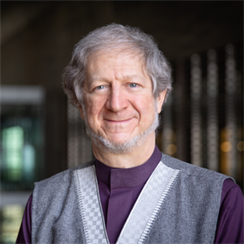
Prof. David Keyes (Director, Extreme Computing Research Center, KAUST)
David Keyes directs the Extreme Computing Research Center at KAUST, where he was founding Dean in 2009 and holds appointments in Applied Mathematics, Computer Science, and Mechanical Engineering. He is also Adjunct Professor at Columbia, where he formerly held the Fu Foundation Chair. He works at the interface between parallel computing and partial differential equations and statistics, with a current focus on exploiting data sparsity. Keyes led scalable solver projects in the SciDAC and ASCI programs of the US DoE, directed university collaboration programs for US DoE and NASA institutes, and taught at Columbia, Old Dominion, and Yale. He is a Fellow of SIAM, AMS, and AAAS. He has been awarded the ACM Gordon Bell Prize, the IEEE Sidney Fernbach Award, and the SIAM Prize for Distinguished Service to the Profession. He earned a B.S.E. in Aerospace and Mechanical Sciences from Princeton and a Ph.D. in Applied Mathematics from Harvard.
Personal Website: https://www.kaust.edu.sa/en/study/faculty/david-keyes
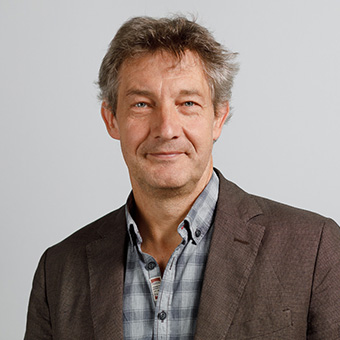
Prof. Peter Bastian (Head of Parallel computing group, University of Heidelberg, Germany)
Peter Bastian studied computer science at Erlangen-Nürnberg University and obtained a doctoral degree in mathematics from Heidelberg University in 1994. After his habilitation at Kiel University in 1999 he obtained professorships at Heidelberg University and Stuttgart University. Since 2008 he has been a professor at the Interdisciplinary Center for Scientific Computing (IWR) at Heidelberg University. Also, he is a chairman of the Heidelberg Graduate School of Mathematical and Computational Methods for the Sciences (HGS MathComp) program. His scientific interests include the numerical solution of partial differential equations, applications in fluid flow, high-performance computing, software design (one of the core developers of DUNE) and computational neuroscience.
Personal website: https://conan.iwr.uni-heidelberg.de/people/peter/
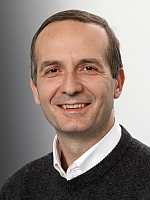
Prof. Edoardo Di Napoli, PhD, (Head of the SimLab Quantum Materials, Institute for Advanced Simulation (IAS) and Jülich Supercomputing Centre (JSC), Germany )
Edoardo Di Napoli (M) is a permanent staff scientist at the Juelich Supercomputing Centre (JSC) and leads the Simulation and Data Lab Quantum Materials (SDLQM). He leads research projects focused on the development of new methods for the simulation of materials for energy applications. He was awarded his Ph.D. in Physics in August 2005 by the University of Texas at Austin working in the team of the Nobel laureate Steven Weinberg. Before joining the JSC, Dr. Di Napoli was a postdoctoral associate at the University of North Carolina and a visiting scientist at the Perimeter Institute for Theoretical Physics in Waterloo, Canada. He is the recipient of the prestigious Fulbright fellowship and the Wolkswagen Stiftung fellowship “Computational Science”. Dr. Di Napoli interests range from mathematical modeling to numerical linear algebra and computational physics with a special focus of enabling high-performance large scale quantum mechanical simulations. His work is quite interdisciplinary in nature encompassing technical knowledge in parallel programming, to algorithm optimization applied to code development and code modernization. Dr. Di Napoli is involved in several European projects and coordinates the largest work package in the European Energy Oriented Center of Excellence (https://www.eocoe.eu/) and recently started a pan-european collaboration to set up the European Laboratory for the Enhanced Automatic Metabolite Annotation. Besides his research activities, Dr. Di Napoli is the spokesperson of the Jülich Supervisors’ Forum and leads the effort to set up on-boarding and training activities for all FZJ daily supervisors.
Personal website: https://www.fz-juelich.de/SharedDocs/Personen/IAS/JSC/EN/staff/di_napoli_e.html
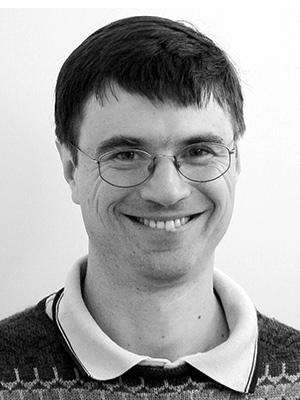
Prof. Martin Head-Gordon (Department of Chemistry, University of California, Berkeley, USA)
Prof. Martin Head-Gordon is a computational quantum chemist at the University of California, Berkeley and Lawrence Berkeley National Laboratory. Prof. Head-Gordon received his Bachelor of Science and Master of Science degrees from Monash University in 1985. He then moved to Carnegie Mellon University to work with Prof. John Pople for his PhD. Subsequently to his graduation with a PhD degree in 1989, he pursued postdoctoral studies at the Bell laboratories during 1989-1992. He is currently the Kenneth S. Pitzer distinguished professor of chemistry at the University of California, Berkeley. Prof. Head-Gordon’s research focus is on attacking the frontiers of electronic structure calculations by the development of novel theories and algorithms. His research combines fundamental quantum mechanics and many-body theory with aspects of applied mathematics and numerical analysis, as well as high-performance computing. He is one of the founders of Q-Chem Inc. Prof. Head-Gordon is honored with numerous recognitions, some of which include the National Science Foundation Young Investigator (1993-1998), Medal of the International Academy of Quantum Molecular Sciences (1998), Member of the National Academy of Sciences and David and Lucile Packard Fellow (1995-2000).
Personal website : https://chemistry.berkeley.edu/faculty/chem/martin-head-gordon
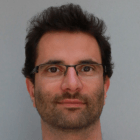
Prof. Bertrand Llorente (CNRS, France)
Prof. Bertrand Llorente did his PhD in 2001 at the Pasteur Institute in Paris under the supervision of Prof. Bernard Dujon. His thesis work was on the functional and comparative genomics of the budding yeast. He moved to the laboratory of Prof. Lorraine Symington at Columbia University in NYC to do his postdoctoral research on the molecular mechanism of Homologous Recombination in yeast from 2001-2005. Since 2007 Prof. Bertrand Llorente is at CNRS, the French National Center for Scientific Research, and head of the lab of “genome dynamics and recombination” at the Cancer research center of Marseille, France. His main interest is in understanding the molecular mechanism of homologous recombination in budding yeasts, both during the mitotic and the meiotic cell cycles.
Personal website: https://www.crcm-marseille.fr/en/teams/research-teams/
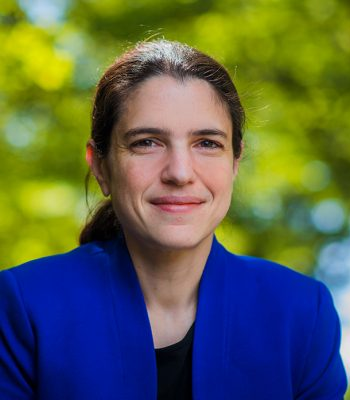
Prof. Heather J. Kulik (MIT)
Prof. Heather J. Kulik is a computational materials scientist at the Massachusetts Institute of Technology (MIT). Prof. Kulik earned her Bachelor’s degree in Chemical Engineering at Cooper Union, New York in 2004. She then moved to the MIT for her graduate studies and worked under the supervision of Prof. Nicola Marzari. She graduated in 2009 with a PhD in Materials Science and Engineering. She then pursued postdoctoral research with Prof. Felice Lightstone at the Lawrence Livermore National Laboratory. She worked alongside Prof. Todd Martinez at Stanford University and Prof. Judith Klinman at the University of California, Berkeley on the large-scale electronic structure of biomolecules. In 2013, Prof. Kulik joined the faculty at the MIT as the Joseph R. Mares Career Development Chair. Her research focus is on the computational design of new materials and the use of artificial intelligence to predict material properties. Her group develops new strategies to improve the accuracy of density functional theory. Enzyme catalysis, transition-metal chemistry and atomistic simulations are some of her favourites. Prof. Kulik has numerous recognitions to her credit. Some of these include the ACS OpenEye Outstanding Junior Faculty Award (2018), Journal of Physical Chemistry and Physics Division Lectureship Award (2019), National Science Foundation Career Award (2019), and the Sloan Research Fellowship (2021).
Personal website: https://cheme.mit.edu/profile/heather-j-kulik/
